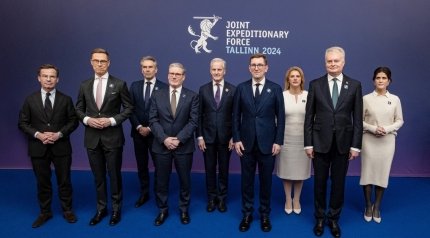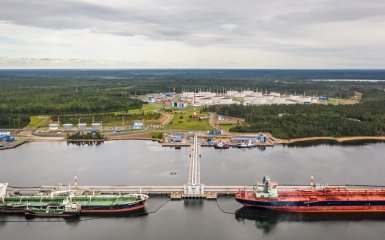Following the JEF leaders' summit held in Tallinn, Denmark, Estonia, Finland, Germany, Iceland, Latvia, Lithuania, the Netherlands, Norway, Poland, Sweden, and the United Kingdom agreed to oppose Russia's use of a shadow fleet to transport its own oil to circumvent sanctions.
Points of attention
- 12 EU countries have come together to oppose Russia's shadow fleet, which is used to circumvent sanctions and transport oil, posing risks to the environment and maritime security.
- JEF leaders emphasized the importance of coordinated measures to destroy and deter the Russian shadow fleet, highlighting the vulnerability of Baltic and North Sea countries to such illicit activities.
- Several JEF member states are implementing requirements for proof of insurance from suspicious vessels passing through specific waterways, aiming to control maritime activities and uphold international safety standards.
- Recent large-scale accidents involving Russian tankers in the Kerch Strait have raised concerns about crew errors in difficult weather conditions, underscoring the need for vigilant monitoring and enforcement measures.
- The joint efforts of EU countries reflect a shared determination to disrupt Russia's shadow fleet, prevent illicit operations, and safeguard international maritime trade, emphasizing the significance of working together to address maritime security threats.
What is known about the JEF group's plans to confront the Russian shadow fleet?
"We are united in our shared determination to take further coordinated steps to disrupt and deter Russia's shadow fleet, confront the risks it poses, and work together to prevent illicit operations and increase Russia's spending," the JEF leaders said in a joint statement.
It is noted that Russia's use of a shadow fleet to sell its own oil in circumvention of Western sanctions poses risks to the environment, maritime security, international maritime trade, and international maritime shipping.

"As coastal states located around the sensitive waters of the Baltic and North Seas, we are particularly exposed to these risks. At the same time, our respective geographical conditions allow us to expose malicious maritime activities and counter the risks they pose, in accordance with our respective legal systems and international law," the joint statement stressed.
In this regard, the United Kingdom, Denmark, Sweden, Poland, Finland and Estonia instruct their respective maritime authorities to require proof of insurance from suspicious vessels when they pass through the English Channel, the Danish Great Belt, the Sound between Denmark and Sweden and the Gulf of Finland.
Information collected by participating States, including those vessels that have chosen not to respond to requests, will be assessed and joint action will be taken.
What is known about large-scale accidents involving ships of the Russian shadow fleet?
Two Russian tankers, Volgoneft-212 and Volgoneft-239, sank in the Kerch Strait. During a severe storm, waves breached the hulls of the vessels.
As reported by Russian media, one of the tankers was so seriously damaged that it was practically cut in half.
The first to suffer an accident was the Volgoneft-212, which was carrying 4 tons of oil. An hour later, the storm also damaged the Volgoneft-239 tanker.
Subsequently, the Russian maritime search and rescue services reported that crew error in difficult weather conditions is being considered among the main versions of the tanker disaster in Kerch.



